
Listening to the Hints
Rather than tracing our tribulations to Hashem and to our own misdeeds, we look for a third party to pin the blame on or to vent our frustrations...

Last week, we learned that a person can change that which has been predetermined on Rosh Hashanah through the power of teshuva, prayer and charity.
Listening to the hints
The story of the Baal Shem Tov and the water carrier explains how our moods, situation, or circumstances can change from hour to hour. You’ve most probably experienced how you’re getting along famously with your spouse or with your superior one hour, and then all of a sudden, out of the clear blue, you’re being yelled at and chastised in a manner that logically makes no sense at all. When you take hourly judgments into consideration though, everything makes sense; last hour’s favorable judgment simply became this hour’s severe judgment.
Everything that saddens a person, even the tiniest cause of mild anguish such a small itch, is the result of a Heavenly-Court decision.
The Gemorra teaches (see tractate Arachin 16b) that every tiny anguish in life comes under the heading of Heaven-sent tribulations, such as trying on a garment that doesn’t fit properly or reaching in your pocket and pulling out a quarter when you wanted to pull out a nickel. By internalizing the knowledge that these moment-to-moment happenings in our life are the products of Heavenly-Court judgments, we greatly enhance our spiritual awareness, our emuna, and our connection to Hashem.
Hashem is Righteous
Imagine that a son misbehaves and subsequently receives a punishment from his father. The mischievous son now blames his misfortune on his younger brother, and picks a fight with him. Now, the father is doubly perturbed: Not only has the mischievous son failed to correct his behavior, but he’s now started a fight with his little brother, who had nothing to do with the punishment!
Many of us act like the mischievous son in the above example. Rather than tracing our tribulations to Hashem and to our own misdeeds, we look for a third party to pin the blame on or to vent our frustrations. Instead of making the right decision – teshuva, the only real solution to all our problems – we fall into traps of anger, frustration, and despair. What a shame.
Even worse, we fail to realize that Hashem is righteous. The feeling that Hashem’s judgments are askew Heaven forbid, is what Reb Natan of Breslev calls, "spoiled justice." One who feels that Hashem’s judgments are unfair develops a warped sense of justice that prevents honest self-evaluation and soul-searching.
Reb Nosson writes, "One develops a warped sense of judgment from the mistaken notions of the world. Most people yell that Hashem doesn’t deal fairly with them, and that their tribulations are beyond their capability of withstanding. They also say that they have no time to serve Hashem, because of the demands of making a living. They therefore believe that Hashem makes impossible demands" (Likutei Halachot, Choshen Mishpat, Nezikin 5).
The truth is that Hashem doesn’t demand anything that a person is not capable of fulfilling.
The key to inner peace is the internalization of the fact that Hashem is righteous and that His decisions are just. We achieve this by constantly reviewing the principles of emuna, namely, that Hashem runs the world, does everything for the best, and has a specific purpose for everything He does. Just as one believes that everything comes from Hashem, one must believe that all of Hashem’s judgments are not only righteous, but merciful and compassionate as well. Since Hashem’s judgments are merciful and compassionate – even though they might not seem that way sometimes – they are always for our ultimate personal benefit. The trials and tribulations that Hashem sends us are designed to bring us closer to Him.
Hashem’s Magnificent Mercy
One doesn’t become a tzaddik overnight. Yet, many people shy away from doing teshuva since they’re afraid of "paying the price" for past sins. Sooner or later, everyone will be doing teshuva; does that mean that they all will have to go through an odyssey of torture as a process of atonement?
The answer is no. There’s a way to beat the rap. Hashem doesn’t allow double jeopardy. Therefore, when we judge ourselves, the Heavenly Court is not allowed to judge us.
The Zohar teaches that where there’s judgment below, there can’t be judgment above. In other words, when we judge ourselves, the Heavenly Court is not allowed to judge us. Practically speaking, this means that when we regularly confess our wrongdoings to Hashem, seek forgiveness, and resolve to improve, then Hashem doesn’t allow the Heavenly Court to judge us; Hashem judges us Himself.
There’s a vast difference between Hashem’s judgments and those of the Heavenly Court – whereas the Heavenly Court judges in exacting, hair-splitting precision by the letter of the law, Hashem’s judgments are merciful and forgiving. When the Heavenly Court tries the case, one is almost always found guilty. When Hashem tries a case, one is always declared innocent.
So, if we want to avoid suffering and tribulations, we should set aside sixty minutes a day for self-evaluation and personal prayer, where we judge ourselves in front of Hashem. If we find ourselves guilty of wrongdoing, all we have to do is confess, ask for forgiveness, and commit to do better. The Heavenly Court subsequently is not allowed to touch the case and to try us even for the worst crime, providing that we’ve confessed to Hashem and are truly doing teshuva at our own initiative. Where there’s judgment below, there can’t be judgment above.
Serving Hashem with a Smile
A person that spends an hour a day in personal prayer and self-evaluation is bound to win a favorable verdict on the critical annual judgment day of Rosh Hashanna.
Our sages teach that we should do teshuva at least one day before we die. The Midrash asks, "Who knows when they’re going to die?" The logical answer is that we should do teshuva right now, for today might be our last day. That way, we’re doing teshuva our entire lives!
Imagine that a person was caught red-handed in crime. The police bring him in front of a judge for arraignment. The judge then says that he’s willing to give the criminal an opportunity to judge himself before the court judges him. The criminal knows that if the case reaches the court, he’s liable to be punished with years of imprisonment. Yet, if he judges himself, he’s off the hook!
Sounds like a fantasy, doesn’t it? What judge would allow a criminal to judge himself?
Hashem.
Hashem, in his unfathomable mercy, allows us to judge ourselves before our case reaches the Heavenly Court. Not only do we avoid punishment, but we are rewarded for our teshuva!
Here’s another example that actualizes the above concept: A driver goes through a red light. In his rear-view mirror, he sees flashing red and blue lights; a siren wails up and down, and a state trooper with an iron jaw and cold-steel glare motions the driver to pull over to the side of the road.
The state trooper gets out of the patrol car, walks up to the driver’s window and prepares to throw the book at the delinquent driver. As he approaches, the state trooper hears the driver mumbling, "Hashem, I’ve deliberately violated the traffic laws and have gone through a red light. I’m really sorry for doing something so irresponsible, endangering myself and other drivers as well. Please forgive me; I promise to do my utmost so this never happens again as long as I live."
The state trooper hears the confession, the remorse, the apology, and the decision to improve, and smiles. "Mister, I was planning to haul you into court, get your license revoked, and ask the judge to nail you with the maximum penalty. But, I hear you rehabilitating yourself. You don’t need to lose your license and to pay a six-hundred dollar fine. Wait a second…"
Pulling out a checkbook with "State of New Jersey" engraved on it, the state trooper writes the driver a check for one hundred thousand dollars, blesses him with a continued safe trip, and lets him go!
If the physical world behaved according to the state trooper’s standards, would there be anyone on earth who wouldn’t do teshuva? A person would have to be totally daft to leave his or her misdeeds uncorrected! Yet, the spiritual world runs exactly according to the state trooper model; when we do teshuva for a misdeed, not only do we avoid punishment, but we’re handsomely rewarded!
In light of the above, an hour a day of personal prayer and self-evaluation is the opportunity of a lifetime. Teshuva is the greatest gift that a loving God can bestow on mankind!
Anyone that spends sixty minutes a day in personal prayer and self-evaluation keeps his or her spiritual ledger free of debits. With only credits to one’s name, a person becomes a worthwhile vessel for Divine light. When Hashem illuminates His splendid Divine light on our souls, we feel deeply happy. As such, with an hour a day of personal prayer and self-evaluation, we can serve Hashem with a smile.
To be continued…




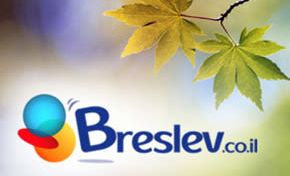
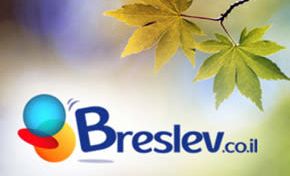
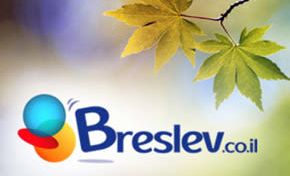
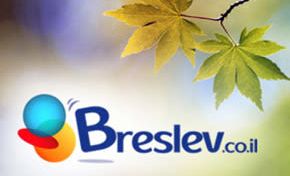
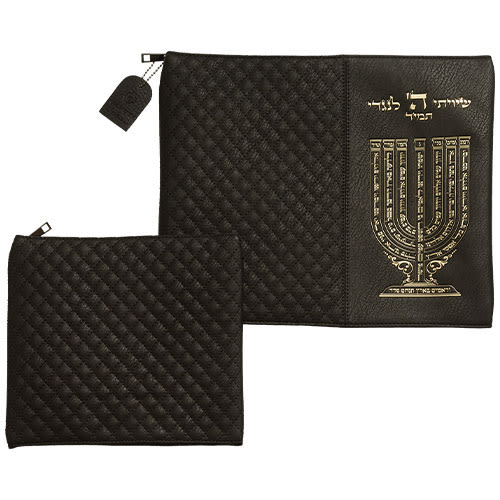
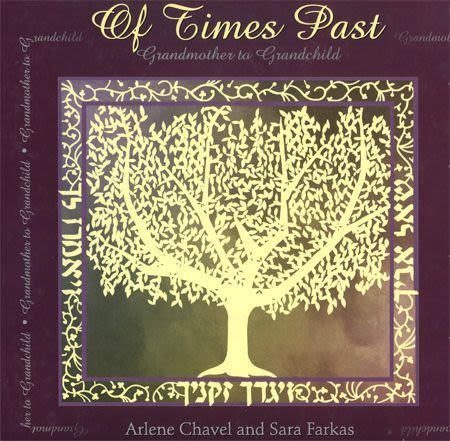
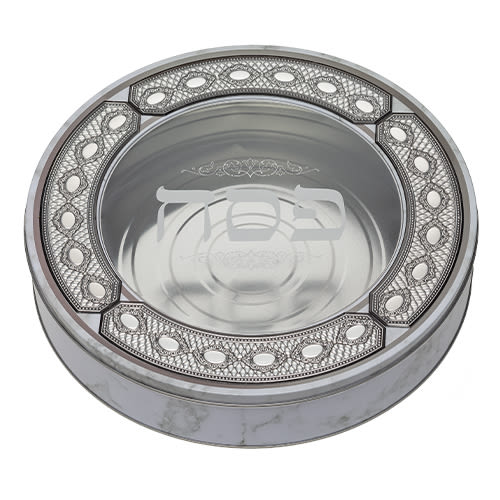

Tell us what you think!
Thank you for your comment!
It will be published after approval by the Editor.